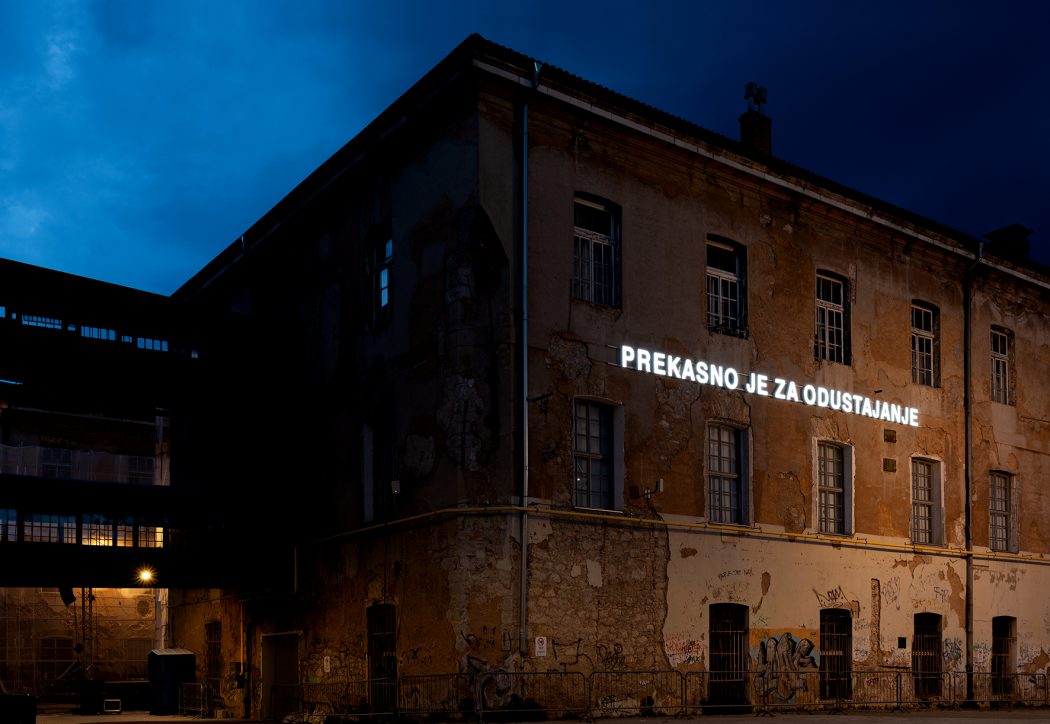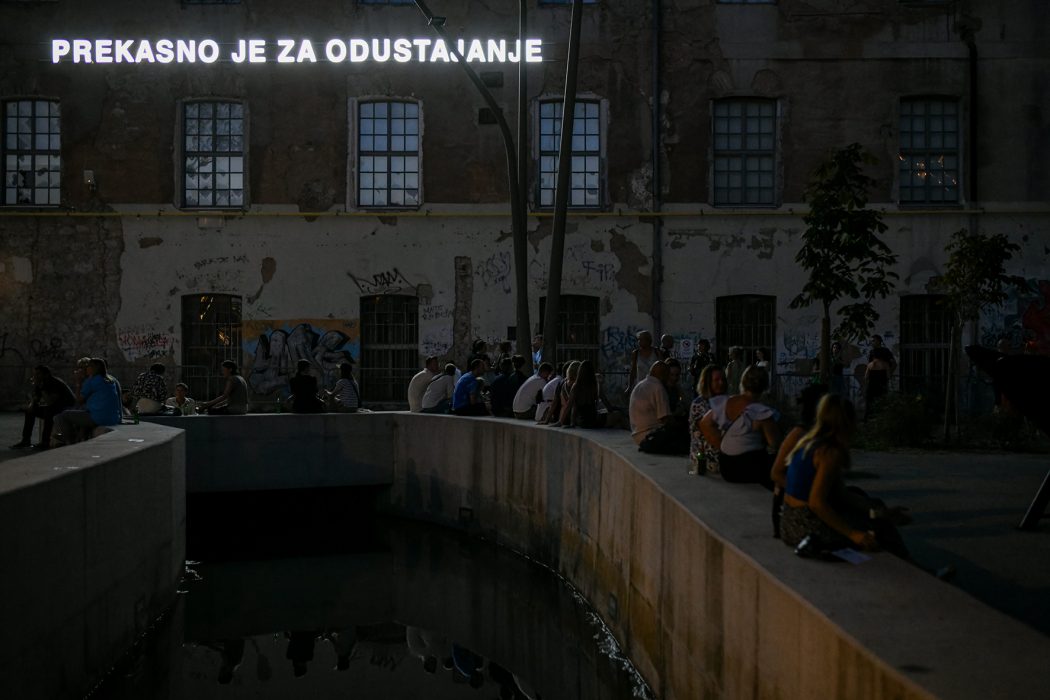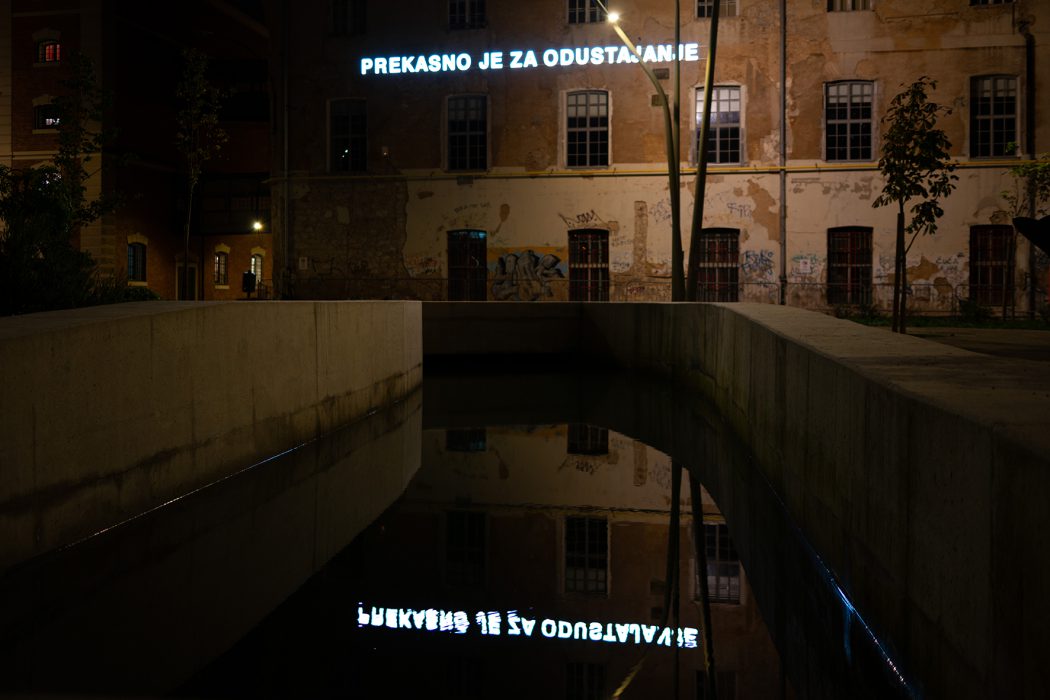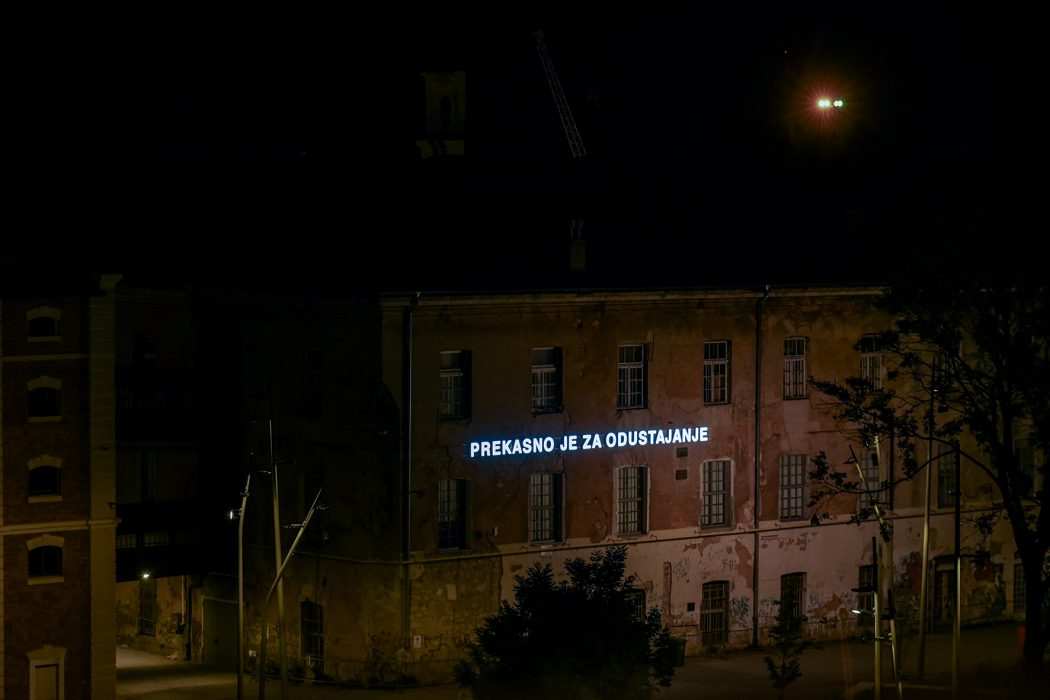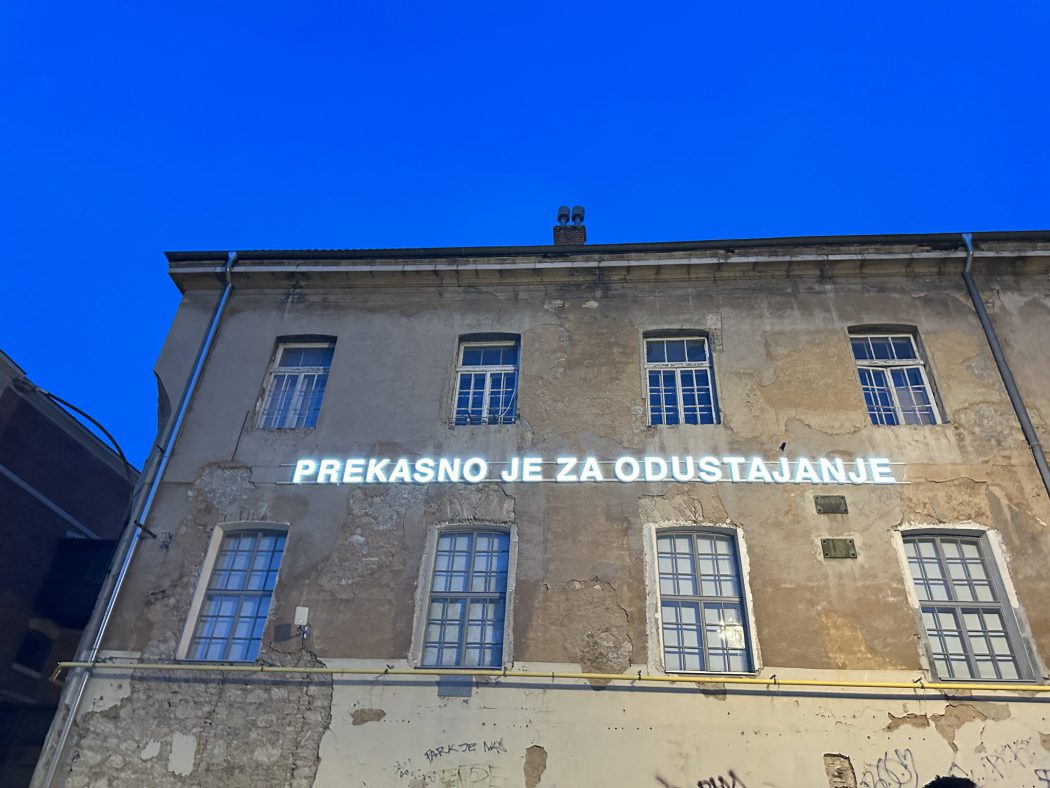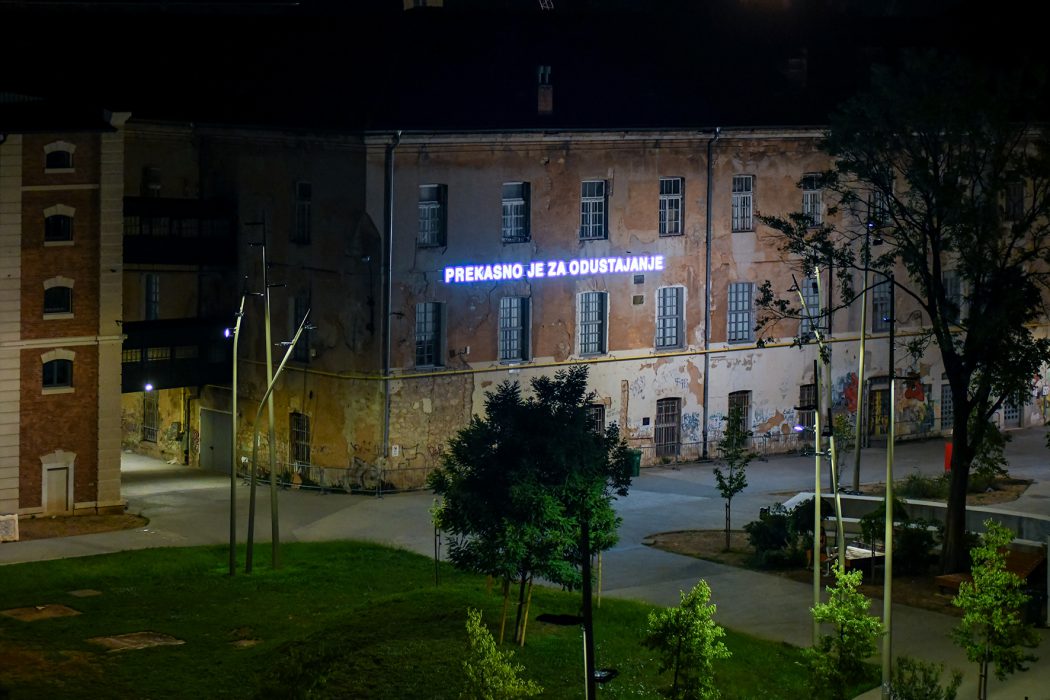The latest art intervention in the Art Quarter is an illuminated inscription that says: It’s too late to give up. Placed on the courtyard façade of the Rijeka Museum of Modern and Contemporary Art and resembling urban graffiti, it pulsates like the collective unconscious. It shines upon the neighbourhood, upon Rijeka, but mostly upon the future. Despite these times of crises and setbacks, and the exhausting transition, it says: It’s too late to give up.
The idea for the illuminated urban graffiti evolved when the curatorial concept for Urgency for the 2020 Festival of Contemporary Art in Omiš was discussed, when Neli wrote down, ‘it is too late for everything, but it is also too late to give up’. The first site of the art intervention was the passenger area in the entrance building of the Zagreb Railway Station. It spoke to pedestrians, passengers, migrants, people trying to get somewhere. As the artist says, I wanted to introduce a contemplative and poetic dimension into everyday life, create a space of closeness and care. I was hoping this phrase would serve as empowerment, and give a little hope to those who are in difficult life situations. (…) The only thing that seems to offer refuge is togetherness and solidarity, as well as keen awareness that we are part of intricate and interdependent biological and geological systems.
The subjectless sentence, where implicitly anyone can be the subject, raises hope for a different tomorrow, where we slow down and fix things instead of giving up. Yet, it avoids overly confident stances and grand promises, while also excluding penance and suffering. It addresses the local community, the citizens of Rijeka, invoking perseverance and the joy of togetherness. There is good news! The future of everything doesn’t exist. There is ‘an everything’ but we don’t know what it is, so there’s no point in talking about it … there isn’t any ‘The Future’ graven in stone towards which we inevitably trundle … There are an infinite number of possible futures, and which one we get will depend partly on decisions we make now (Margaret Atwood, ‘The Future of Everything’).
Curator: Ksenija Orelj
